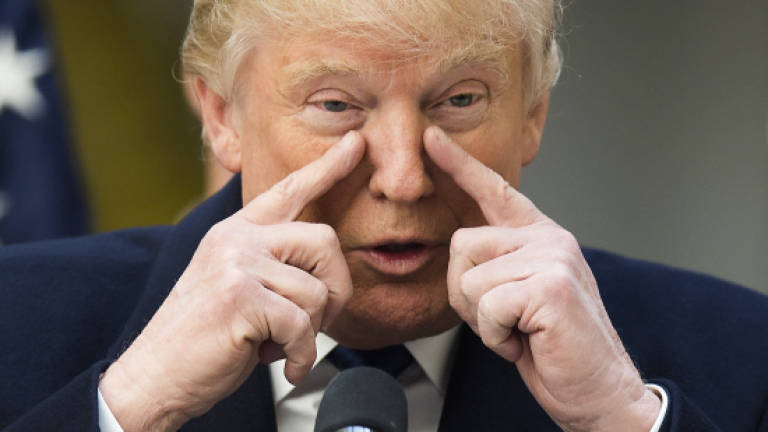Trump outlines isolationist policy and advisor team

WASHINGTON DC: White House hopeful Donald Trump outlined Monday a starkly isolationist stance and a advisory team drawn from the energy industry and the wilder fringes of Washington's foreign policy establishment.
Trump, who is closing in on the Republican presidential nomination, had been under pressure to name a foreign policy team, amid reports that mainstream experts are loath to endorse him.
But in a wide-ranging interview with The Washington Post editorial board, the property baron turned Republican frontrunner rattled off half a dozen names prepared to lend their reputation to his campaign.
And, despite the association of some of the figures with the Middle East adventurism of George W. Bush's administration, he endorsed a radical retreat from the United States' security commitments overseas.
"I do think it's a different world today, and I don't think we should be nation-building anymore," Trump told the paper, dismissing his fellow Republican's record in Iraq and Afghanistan.
"I think it's proven not to work, and we have a different country than we did then. We have US$19 trillion (RM76.9 trillion) in debt," he added, promising to build up the US military but to send it to fewer places.
Trump raised concern about China's aggressive posture in the South China Sea, where its forces are building bases on disputed reefs and newly-built artificial islands, but he said allies South Korea and Japan should pay more for US protection.
And in Europe, he criticized Germany for not tackling Russian ambitions in Ukraine, warning the leading role played by Washington in the NATO alliance is no longer affordable and will be scaled back.
Later, at a press conference, he said he would seek a better relationship with Russia and its president, Vladimir Putin, rather than confrontation.
Syariah threat
On counterterrorism policy, Trump is listening to Walid Phares, an academic whom Mother Jones magazine has reported as being formerly tied to civil war-era Lebanese Christian warlords.
For defense, Trump turned to Keith Kellogg, a retired US Army lieutenant general turned consultant who was chief operating officer to the US occupation of Iraq during its disastrous early months in 2003 and 2004.
Another pick, Joe Schmitz, also served during Bush's administration — as inspector general to the Pentagon — and later in a senior role with US mercenary outfit Blackwater.
He co-authored a report for a little-known conservative think tank, the Center for Security Policy, entitled: "Sharia — The Threat to America."
The list is rounded out by energy experts Carter Page and George Papadopoulos, who previously advised Trump's defeated rival for the Republican flag-bearer role, renowned brain surgeon Ben Carson.
Trump outlined what the Post's story called his "an unabashedly non-interventionist approach to world affairs" shortly before he was due to address the pro-Israel lobby group AIPAC. — AFP